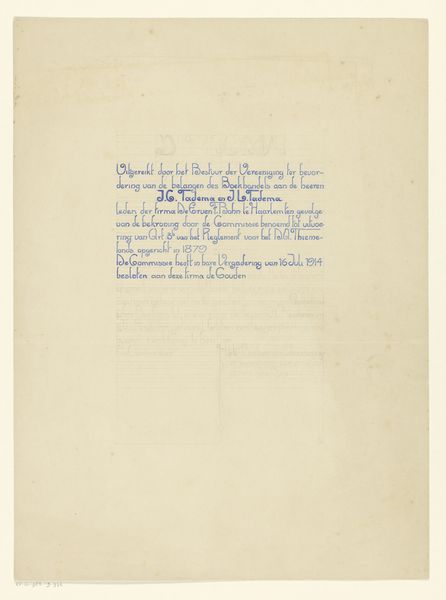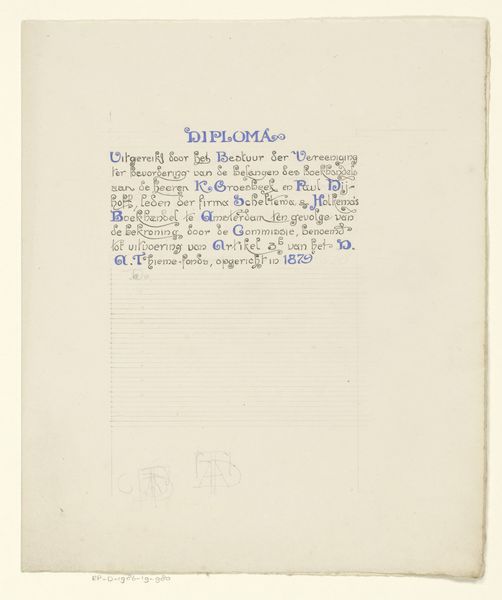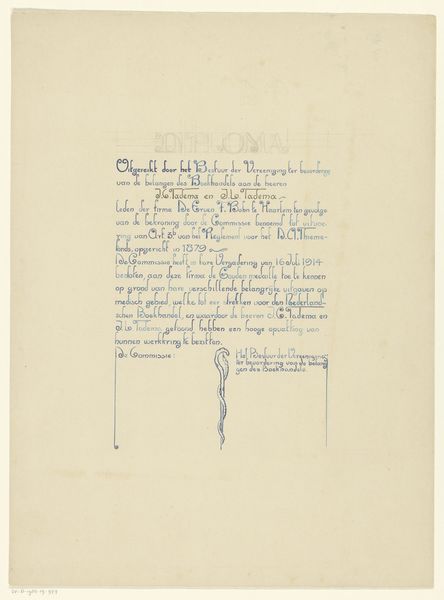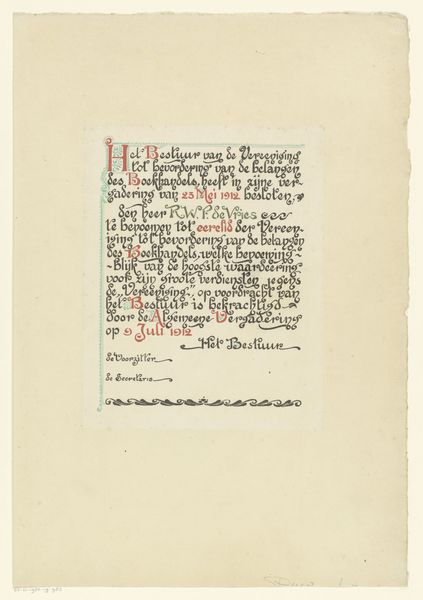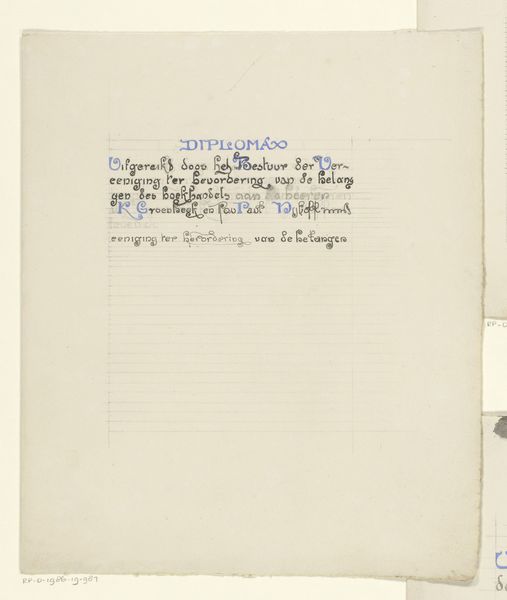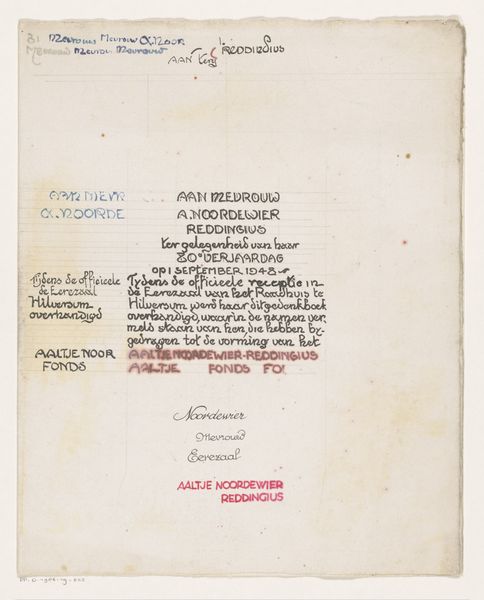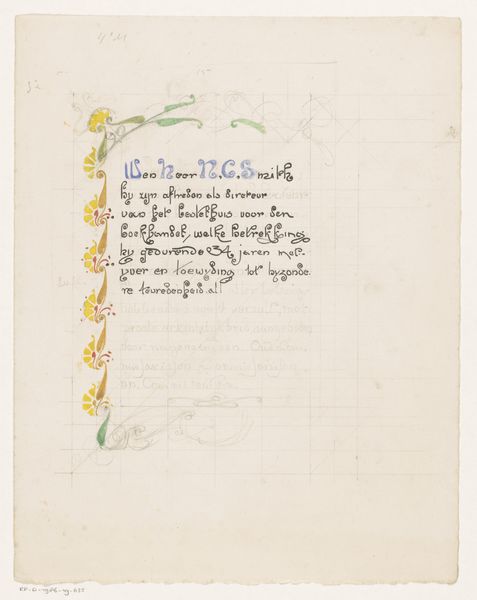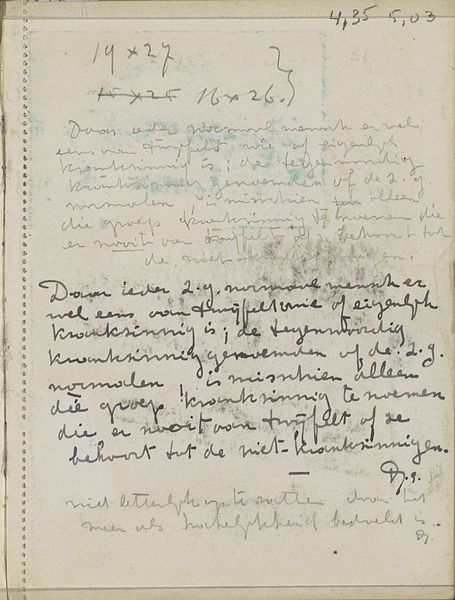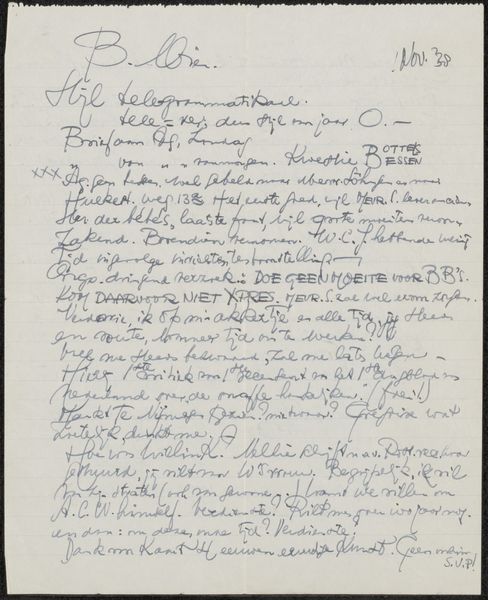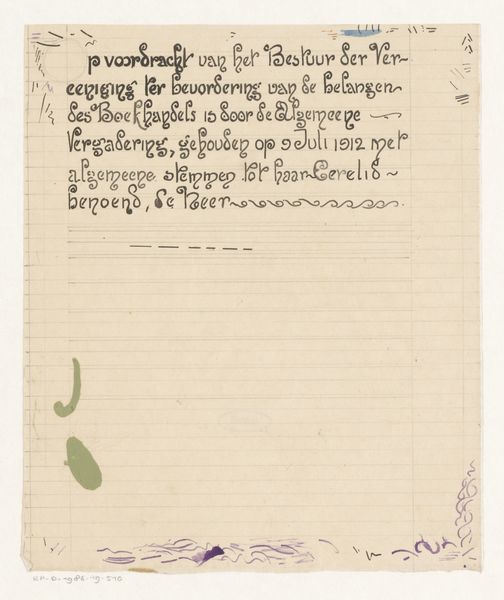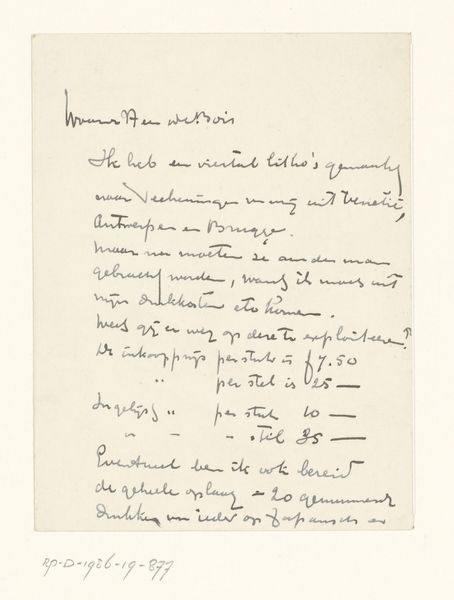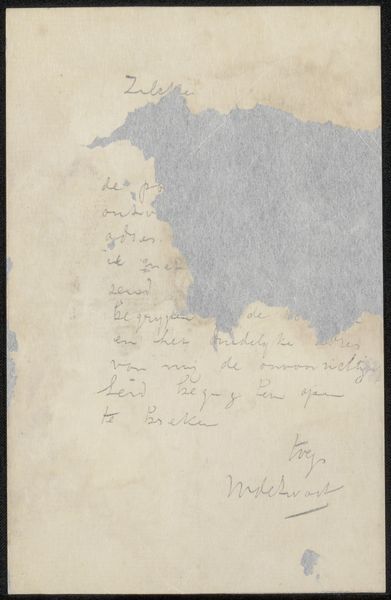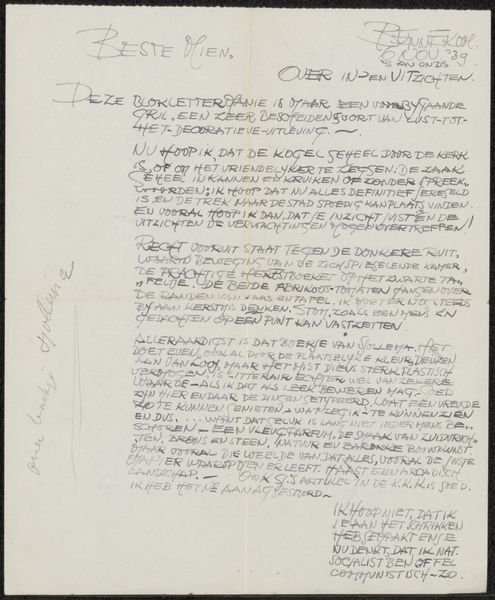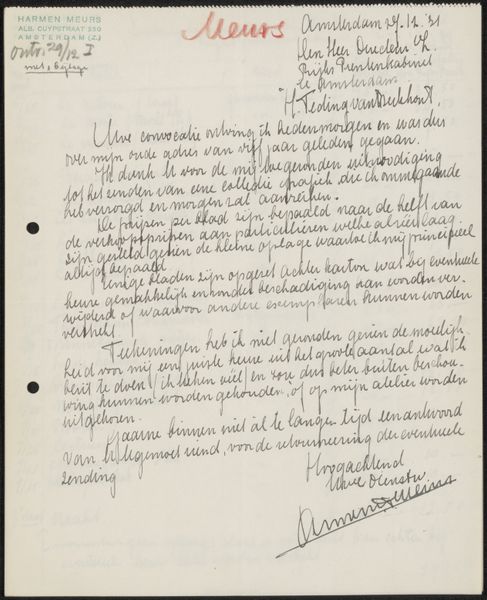
Ontwerp voor een diploma van de Vereniging ter Bevordering van de Belangen des Boekhandels 1909
0:00
0:00
drawing, graphic-art, paper, typography, ink, pen, poster
#
drawing
#
graphic-art
#
comic strip sketch
#
aged paper
#
art-nouveau
#
ink paper printed
#
old engraving style
#
hand drawn type
#
paper
#
personal sketchbook
#
typography
#
ink
#
fading type
#
ink colored
#
sketchbook drawing
#
pen
#
decorative-art
#
poster
#
sketchbook art
Dimensions: height 253 mm, width 212 mm
Copyright: Rijks Museum: Open Domain
Curator: Look at this beautiful diploma design, "Ontwerp voor een diploma van de Vereniging ter Bevordering van de Belangen des Boekhandels" it’s a mouthful. Designed in 1909 by Reinier Willem Petrus de Vries. Editor: It reminds me of something between medieval script and art nouveau, almost like a fairy tale certificate with a formal and somewhat antiquated mood, wouldn't you agree? Curator: Absolutely. You've hit on something interesting about how tradition shapes new forms. Considering that this diploma translates to "Design for a diploma from the Association for the Promotion of the Interests of Booksellers," this certificate had to blend respectability with the artistic flourish that defines Art Nouveau at the time. Editor: Indeed, looking through a feminist lens, I wonder what kind of space this creates for women within the literary and professional marketplace. Did bookshops represent spaces of social liberation and intellectual equality? Or were they more concerned with performative progressivism while still benefiting patriarchal structures? Curator: I think the typography is fascinating, there are those playful, swirling lines! But the shades and the texture… I am truly curious to feel the paper stock it was on. I wonder how De Vries felt, putting pen to paper for what may have seemed like a bureaucratic formality. It's those human imperfections in a utilitarian object that I always love. Editor: You are drawn in by aesthetics while I tend to think: "How was literacy perceived? And who had access to books, education, and capital?" Even a diploma has underlying structures and can show privilege. I love thinking about what statements like that make for contemporary capitalism, especially because cultural and social capital plays a large part in that too. Curator: We come at this from very different directions, don’t we? Ultimately, it’s a humble object that contains many questions within. Editor: Yes, an amazing jumping-off point for more discussions on societal power, even through the simple awarding of a piece of paper!
Comments
No comments
Be the first to comment and join the conversation on the ultimate creative platform.
